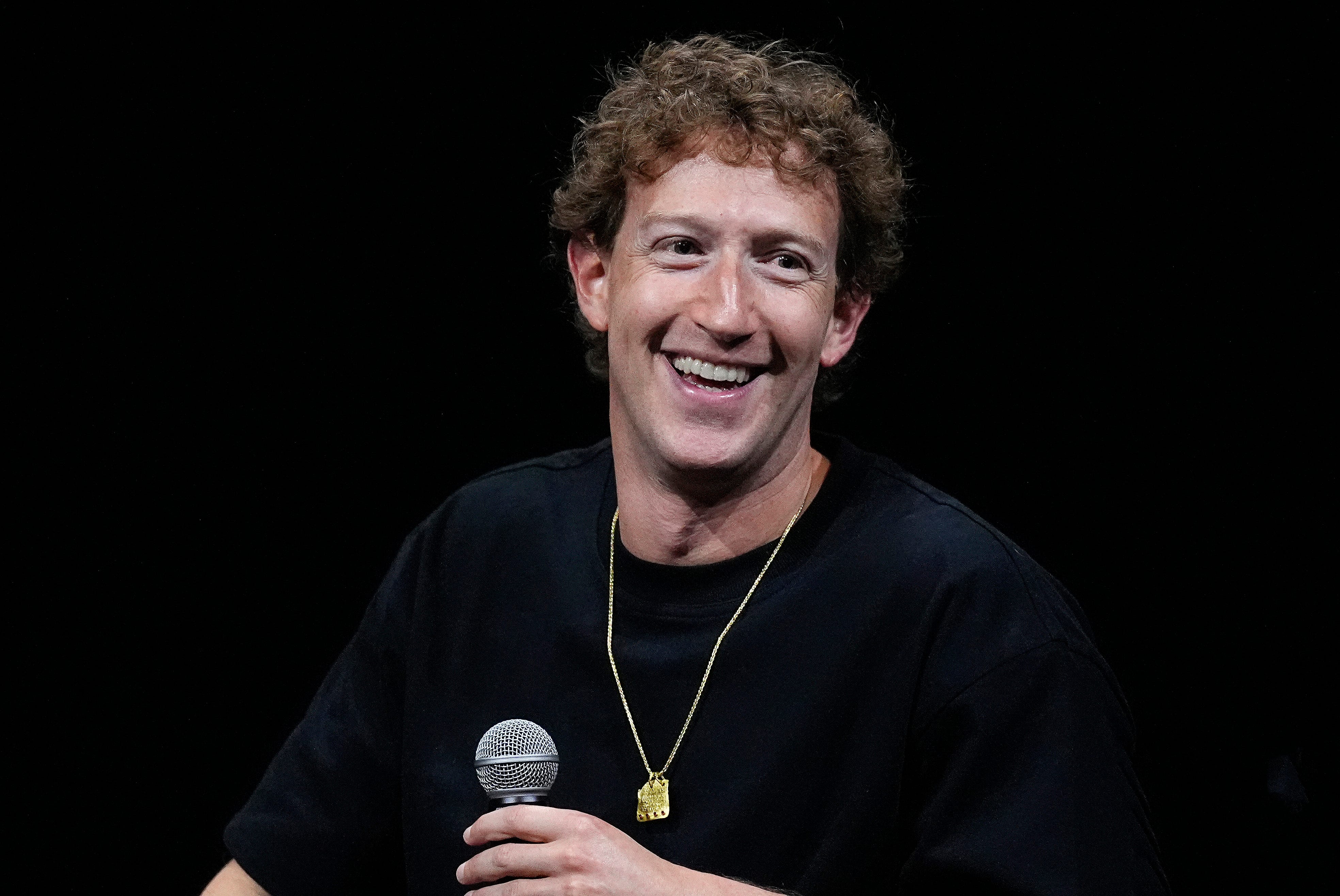
David Zalubowski/ AP Images
Mark Zuckerberg is betting big on going small. You might call it going “startup mode.”
Meta’s new superintelligence unit includes a secretive group of hot-shot hires called TBD Lab meant to develop the most advanced artificial intelligence models, a recent internal memo shows.
The unit represents a fraction of Meta’s total workforce of over 70,000 employees. Many of its members, including its leader, Alexandr Wang, were hired away from buzzy AI startups.
“I’ve just gotten a little bit more convinced around the ability for small, talent-dense teams to be the optimal configuration for driving frontier research,” Zuckerberg said on Meta’s latest earnings call.
“It’s a bit of a different setup,” the Meta CEO said of the superintelligence group, contrasting it to the legions of engineers needed to manage powerful algorithms like Facebook’s newsfeed.
It’s not just at Meta. The gospel of small teams is spreading fast across Silicon Valley, which has lean startups in its DNA.
From Big Tech to bare-bones upstarts, groups of star workers are pushing the frontier, aided by AI and leaders’ desire to cut through bureaucracy.
As the small-teams era takes hold following a pandemic-era hiring boom, it remains unclear whether the model will work as well for the big guys as it can for startups.
That’s not stopping major players from trying.
Cutting through red tape to ship faster
It’s not just Big Tech where micro is having a minute.
Kashish Gupta, cofounder of Hightouch, a San Francisco AI marketing startup valued earlier this year at $1.2 billion, strongly advocates the small teams approach.
Hightouch has raised over $132 million while avoiding massively scaling up its head count, with a total of about 55 engineers, Gupta said.
The startup expects engineers to be self-starters who build products without requiring micromanagement from their bosses. For example, a major new AI agent launch has only four engineers working on it.
“Ultimately, the people prioritizing work are the engineers themselves or the people they work with,” Gupta said.
Gupta isn’t alone in his enthusiasm.
“Smaller teams are better,” reads a manifesto written by Nat Friedman, the investor and former GitHub CEO, on his personal website.
“Faster decisions, fewer meetings, more fun,” Friedman writes, arguing that many tech companies are two to 10 times overstaffed.
Meta declined to comment to Business Insider on its management approach. Friedman, who joined Meta’s superintelligence effort in June and heads its division integrating AI into products, didn’t respond to a request for comment.
Zuckerberg has continued to tinker with Meta’s org chart and head count over the years, touting that “flatter is better” and “leaner is faster” as part of Meta’s 2023 year of efficiency.
His latest thesis: In some cases, smaller is better, too.
A trend supercharged by AI
Breakthroughs in AI have often relied on just a small group of researchers.
The basic architecture behind most modern large language models was introduced in the 2017 paper “Attention Is All You Need” —authored by eight researchers, largely from Google. There is also a far smaller pool of AI researchers to hire in the first place.
Both factors help explain why Meta has reportedly tried to poach researchers with jaw-dropping, nine-figure compensation packages.
“Based on my experience, AI advancement really relies on breakthroughs that come from just a few people,” Yangshun Tay, an AI engineer, previously told Business Insider.
“You don’t need too many — just a few smart, cream-of-the-crop people to have major breakthroughs and extremely disproportionate impact,” he said.
Small teams aren’t always a magic fix
The big question now is whether these startup-style teams can push a huge tech company like Meta to the cutting edge.
Small teams with broad remits can face outsize challenges. One reason is that a group representing a small dot on a sprawling org chart might still be beholden to corporate legal, human resources, and recruiting teams, said Elliott Parker, CEO of Alloy Partners, which helps large corporations create startups.
Beyond that, a special unit inside an organization can leave legacy workers feeling like they’re stuck on the side that’s “not where the stars go,” he said.
The arrival of a new and lavishly compensated superintelligence unit at Meta has sparked tensions and even resignation threats from some existing researchers, Business Insider previously reported.
There might also be challenges related to potential overlap, where multiple small teams end up doing the same thing. Google has compared this issue to “slime mold,” while Meta has reorganized its AI division multiple times already — dissolving two units over the last four months alone.
Meta’s latest reorg might very well do the trick. However, Parker said, it’s rare for innovation teams within large companies to truly transform their parent organization.
Small teams often deliver useful new products, services, and efficiency gains — just not the “fundamental transformation that corporations are often seeking,” he said.
Zuckerberg has a sunnier take. In Meta’s earnings call last month, he sounded bullish that it’s at least the right approach for keeping an edge in the AI race.
“For the leading research on superintelligence, you really want the smallest group that can hold the whole thing in their head, which drives, I think, some of the physics around the team size and how the dynamics around how that works,” he said.
The post Mark Zuckerberg is going ‘startup mode’ and doubling down on small talent-dense teams appeared first on Business Insider.




